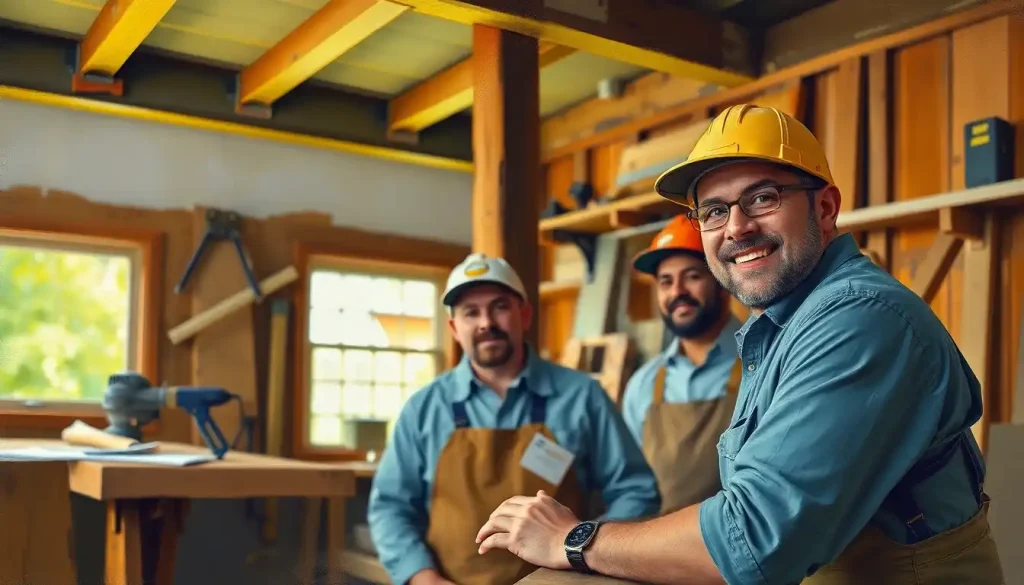Sherlock Holmes would have relished the challenge of being a trustee, tasked with uncovering hidden assets and piecing together the financial puzzle of an estate. The role of a trustee is indeed a complex and multifaceted one, requiring a keen eye for detail, unwavering dedication, and a touch of detective work. It’s a responsibility that goes far beyond simply managing assets; it’s about unraveling the intricate web of an individual’s financial life, often after they’ve passed on.
Imagine stepping into the shoes of a trustee. You’re handed a stack of papers, a set of keys, and the weighty task of ensuring that a person’s final wishes are carried out to the letter. It’s not just about distributing assets; it’s about discovering them first. This process can be as thrilling as it is daunting, filled with unexpected twists and turns that would make even the most seasoned detective’s head spin.
The Trustee’s Toolkit: Unraveling the Financial Mystery
At its core, the role of a trustee is to act as a fiduciary, managing the assets of a trust for the benefit of its beneficiaries. This sounds straightforward enough, but the devil, as they say, is in the details. Trustees are often confronted with a labyrinth of financial information, some of it clear as day, some of it shrouded in mystery.
The challenges in identifying and locating inheritance assets are numerous. Some assets may be hidden, intentionally or not. Others might be forgotten, tucked away in a dusty corner of a safety deposit box or buried in the depths of a long-unused bank account. Digital assets, a relatively new frontier in estate planning, add another layer of complexity to the trustee’s task.
But fear not, intrepid trustee! There are methods at your disposal to uncover these elusive assets. From poring over legal documents to employing cutting-edge technology, the modern trustee has a veritable Swiss Army knife of tools to tackle this financial detective work.
Paper Trail: The First Step in Asset Discovery
The journey of asset discovery often begins with a mountain of paperwork. It’s not the most glamorous part of the job, but it’s crucial. The trust document and will are your roadmap, providing essential information about known assets and potential hiding spots for others.
Bank statements and investment accounts are goldmines of information. They can reveal regular deposits from unknown sources, hinting at additional income streams or assets. Don’t overlook those small, recurring transactions – they could be dividends from a long-forgotten stock portfolio.
Tax returns are another treasure trove of information. They can provide clues about income-generating assets, property ownership, and business interests. Pay close attention to Schedule B, which lists interest and dividend income, and Schedule E, which details rental property and partnership income.
Safety deposit boxes are the stuff of mystery novels, potentially holding valuable jewelry, rare coins, or important documents. But finding them can be tricky. Check bank statements for annual fees related to safety deposit boxes, or look for keys in the deceased’s personal effects.
The Human Touch: Reaching Out to Financial Professionals
While documents can tell you a lot, sometimes you need to talk to actual people to get the full picture. Financial institutions are a good place to start. Banks and credit unions may have accounts you weren’t aware of, or information about loans and other financial products.
Investment firms and stockbrokers can provide details about securities holdings, retirement accounts, and other investments. Don’t forget to ask about any automatic reinvestment plans or dividend reinvestment programs (DRIPs) that might be in place.
The deceased’s accountant or financial advisor can be an invaluable resource. They often have a comprehensive understanding of the person’s financial situation and can point you towards assets you might have missed. Similarly, the estate’s attorney may have information about business interests, real estate holdings, or other assets that weren’t immediately apparent.
It’s worth noting that while these professionals can be incredibly helpful, they’re also bound by confidentiality agreements. You’ll need to provide proof of your authority as a trustee before they can share information with you.
Digital Sleuthing: Uncovering Assets in the Virtual World
In our increasingly digital world, online resources and databases have become essential tools for asset discovery. Unclaimed property databases, maintained by each state, can be a goldmine of forgotten assets. These databases list everything from uncashed checks to abandoned bank accounts and safe deposit box contents.
Online asset search tools, some free and some paid, can help you cast a wider net. These tools can search multiple databases simultaneously, potentially uncovering assets across different states or even countries.
In today’s digital age, it’s crucial not to overlook digital assets. These can include everything from online bank accounts and cryptocurrency holdings to valuable domain names or monetized social media accounts. How to Find Out if You Have an Inheritance: A Comprehensive Guide can provide more insights into navigating this digital landscape.
Social media accounts, while not typically considered financial assets, can provide valuable clues. A casual mention of a vacation home or a prized collection could lead you to previously unknown assets.
Boots on the Ground: The Importance of Physical Searches
While much can be discovered from behind a desk, sometimes you need to get out there and search physically. Real estate records and property deeds can reveal ownership of land or buildings that weren’t mentioned in other documents. Don’t forget to check for timeshares or fractional ownership arrangements.
Vehicle registrations and titles can lead you to cars, boats, RVs, or even aircraft. These assets can be significant, especially if they’re collectible or vintage models.
Valuable collectibles or artwork can be tricky to track down, but they’re often worth the effort. Look for insurance policies that might cover high-value items, or check with local auction houses or galleries that might have done business with the deceased.
Storage units or other off-site locations can be treasure troves of forgotten assets. Check bank statements for recurring payments to storage facilities, or ask family members if they know of any storage units or safe deposit boxes.
Calling in the Cavalry: Professional Asset Search Services
Sometimes, despite your best efforts, you might need to call in professional help. Forensic accountants are trained to follow the money trail and can be invaluable in uncovering hidden assets or complex financial structures.
Private investigators, while often associated with more dramatic pursuits, can be extremely useful in asset searches. They have access to databases and resources that aren’t available to the general public and can often uncover information that would be difficult or impossible for you to find on your own.
Specialized asset search companies offer comprehensive services, often combining elements of forensic accounting, private investigation, and advanced data analysis. While these services can be expensive, they can be worth it in complex cases or when large sums are involved.
When considering professional services, it’s important to weigh the costs against the potential benefits. If you suspect there are significant hidden assets, the expense of a professional search could be well worth it. However, for smaller estates or when you’re reasonably confident you’ve located all major assets, it might not be necessary.
The Ethical Trustee: Navigating Legal and Moral Responsibilities
As you embark on this financial detective work, it’s crucial to remember your legal and ethical responsibilities as a trustee. Your primary duty is to act in the best interests of the beneficiaries, which includes making a diligent effort to uncover all assets belonging to the estate.
However, this doesn’t give you carte blanche to invade privacy or break laws in your search. Always ensure you have the legal authority to access information or search properties. If in doubt, consult with a Trust Inheritance Attorney: Navigating Estate Planning and Wealth Transfer to guide you through the legal intricacies.
It’s also important to be transparent with beneficiaries about your efforts and findings. Regular communication can help build trust and prevent misunderstandings. Remember, beneficiaries have the right to know about the assets in the estate, but they don’t have the right to direct your actions as a trustee.
The Final Piece of the Puzzle: Putting It All Together
As you near the end of your asset discovery journey, it’s time to compile all your findings into a comprehensive inventory. This should include all assets you’ve uncovered, their estimated values, and any relevant documentation.
Don’t forget to document your search process as well. This can be crucial if questions arise later about the thoroughness of your search or if previously unknown assets surface after the estate has been settled.
Remember, asset discovery is not a one-time event. New information can come to light months or even years after an estate is settled. Stay vigilant and be prepared to reopen your investigation if new leads emerge.
In conclusion, being a trustee is a challenging but rewarding role. It requires patience, persistence, and a willingness to dig deep and ask tough questions. But with the right tools and approach, you can unravel even the most complex financial mysteries and ensure that the deceased’s wishes are carried out faithfully.
As you embark on your own trustee journey, remember that you’re not alone. There are resources available to help you, from Find Inheritance Money: A Complete Guide to Uncovering Hidden Assets to professional advisors who can guide you through the process. With diligence, thoroughness, and a touch of detective work, you can successfully navigate the intricate world of estate asset discovery.
References:
1. American Bar Association. (2021). Guide to Wills and Estates. 4th Edition.
2. National Association of Estate Planners & Councils. (2022). Professional Standards in Estate Planning.
3. Internal Revenue Service. (2023). Estate and Gift Taxes. https://www.irs.gov/businesses/small-businesses-self-employed/estate-and-gift-taxes
4. National Association of Unclaimed Property Administrators. (2023). Unclaimed Property Laws. https://unclaimed.org/
5. Carmack, S. (2021). The Complete Guide to Estate Planning. Wiley.
6. American Institute of Certified Public Accountants. (2022). Forensic Accounting Standards.
7. National Conference of Commissioners on Uniform State Laws. (2020). Uniform Probate Code.
8. Investopedia. (2023). Digital Assets: Definition and How They Work. https://www.investopedia.com/terms/d/digital-asset.asp
9. U.S. Securities and Exchange Commission. (2023). Estate Planning. https://www.investor.gov/additional-resources/general-resources/glossary/estate-planning
10. Nolo. (2023). The Executor’s Guide: Settling a Loved One’s Estate or Trust. 9th Edition.












Would you like to add any comments? (optional)